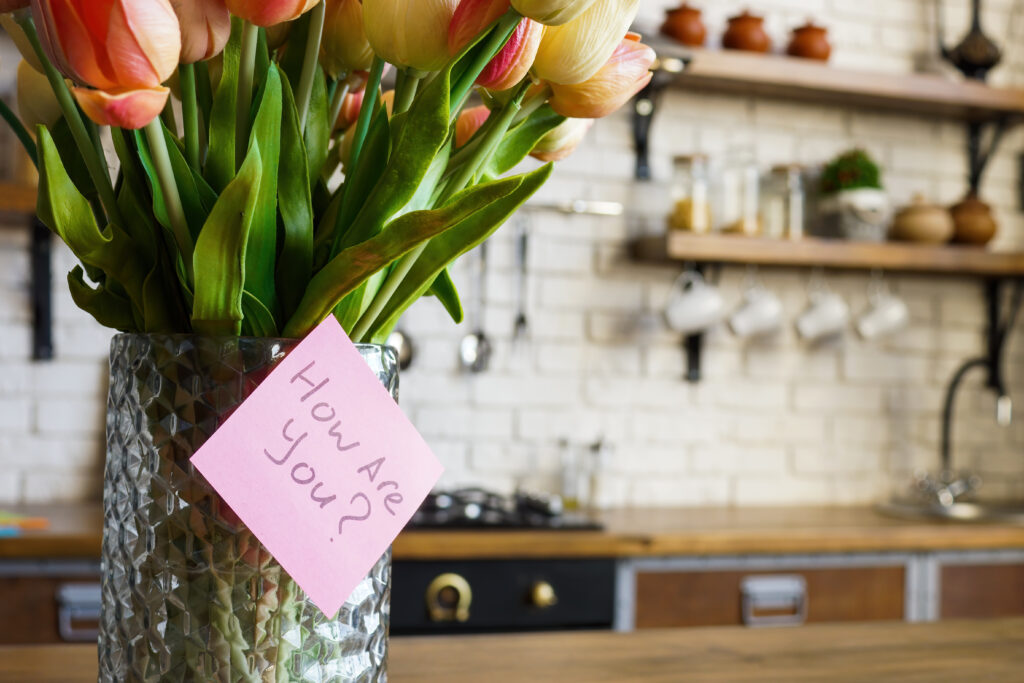Hello lovely students! Are you tired of saying the same thing repeatedly in English? Phrases like “How are you?” or “goodbye” (which is rarely used in conversation). Do you wish for something a bit more natural sounding?
Fortunately for you, I’ve put together an excellent list of common English phrases used almost every day by people who know the language well, whether they’re non-native English speakers or native English speakers.
You’ll be turning “How are you?” into something more advanced in no time.
Are you ready? Let’s get started.

Common phrases to ask how someone is
1) What’s up?
Hey, what’s up? I haven’t seen you in a while!
2) What’s new?
What’s new with you at the moment? How is your job going?
3) How’s it going?
How’s it going? I hear you have a new car.
4) How’s everything?
How’s everything? I haven’t spoken to you in a while, which is odd considering we are close friends.
5) How are things?
How are things? Are you feeling ok now?
6) How is life?
How is life? Anything good happening?
7) How’s life treating you?
How’s life treating you? I’m sure you have a lot to tell me.
8) What have you been up to recently?
What have you been up to recently? Anything fun?
Common phrases to respond to when someone asks how you are
9) I’m fine, thanks. How are you?
A: How’s it going?
B: I’m fine, thanks. How are you?
10) Pretty good
A: How’s life?
B: Pretty good.
11) Same old, really
A: How’s life treating you?
B: Same old, really.
12) Not so great, really
A: How’s life treating you?
B: Not so great, really.
13) Could be better
A: How is life?
B: Could be better.
14) Can’t complain
A: How are things?
B: Can’t complain.
Top tip: the responses to 12 and 13 are negative and should only be used if you are not feeling great. However, we usually only use these responses for people we know well. Most of the time, British people will say they are fine even when they are not.
Common phrases to say thank you
15) I really appreciate that/it
Thanks for paying for me when I didn’t have enough money. I really appreciate it.
16) I’m really grateful
I’m really grateful that you introduced me to my new friends at the club.
17) That’s so kind of you
That’s so kind of you to offer me your last piece of cake.
18) I owe you one/big time
Thanks for telling my client to wait patiently. I owe you big time.
Common phrases to respond to thank you
19) You’re most welcome
A: I really appreciate it!
B: You’re most welcome.
20) No worries!
A: I’m really grateful for everything you have done.
B: No worries!
21) My pleasure!
A: Thanks for having me over. I owe you big time.
B: My pleasure!
22) Anytime!
A: I love the bag you got me! That’s so kind of you.
B: Anytime!

Common phrases to ask for information
23) Do you have any clue/idea?
Do you have any clue what’s going on with the train strikes?
24) You wouldn’t happen to know _________, would you?
You wouldn’t happen to know where the nearest supermarket is, would you?
25) I don’t suppose you know______
I don’t suppose you know where Jon is.
Common phrases to say I don’t know
26) I have no idea
I have no idea where the nearest supermarket is.
27) I haven’t got a clue
I haven’t got a clue where Jon is.
28) Sorry, I can’t help you there
Sorry, I can’t help you there. I’m not from here.
29) I’m not really sure!
I’m not really sure when the train strikes are.
30) I’ve been wondering the same thing/that too!
I’ve been wondering the same thing. Where is Jon?

Common phrases for agreeing
31) Exactly
Exactly! That’s what I was thinking.
32) Absolutely
Absolutely! That English test was so interesting.
33) That’s so true
That’s so true. He arrives late for work once in a blue moon.
34) That’s right
That’s right. It’s extremely common to find tea on menus in England.
35) I agree 100%/I 100% agree
I agree 100%. It’s raining cats and dogs. We should cancel the barbecue.
36) I couldn’t agree more
I couldn’t agree more. Everyday conversation is so important when learning a language. The English language is no exception.
37) Tell me about it
Tell me about it. Having a sore throat is horrible.
Top tip: we say I 100% agree when speaking English, never when writing.
Common phrases for disagreeing
38) I’m not sure about that
I’m not sure about that. You can’t rely on apps to become fluent faster in a language. You need lessons too.
39) That’s not how I see it
That’s not how I see it. English idioms are so much fun to learn.
40) Not necessarily
Not necessarily. I don’t think all native English speakers speak better English than those who learn English as a second language.
41) I can’t agree with you there
I can’t agree with you there. You are barking up the wrong tree. I don’t think she took your pencil.

Common phrases to end a conversation politely
42) Well, it was lovely chatting with you
Well, it was lovely chatting with you. I hope you have a good morning tomorrow.
43) Right! I need to get going
Right! I need to get going, or I will be late for my doctor’s appointment.
44) Right, I must be off
Right, I must be off. I’m speaking English at a conference and must revise my English vocabulary.
Top tip: when British people sit down and say right, I must be off, they usually slap their thighs before getting up.
Common phrases for saying goodbye
45) Speak soon
I have to go now. Speak soon!
46) Give my love to your family
It was lovely seeing you. Give my love to your family!
47) Bye bye
Have a lovely time. Bye Bye!
48) Take care
Have a lovely day. Take care!
49) Have a good one
I hope it goes well. Have a good one!
50) Talk to you later!
I’ll call you tonight. Talk to you later!
Top tip: no one really knows what the ‘one’ in have a good one means, but it is assumed it means have a good day.
Is that everything?
Absolutely not! Check out the YouTube video below on my channel English with Lucy.